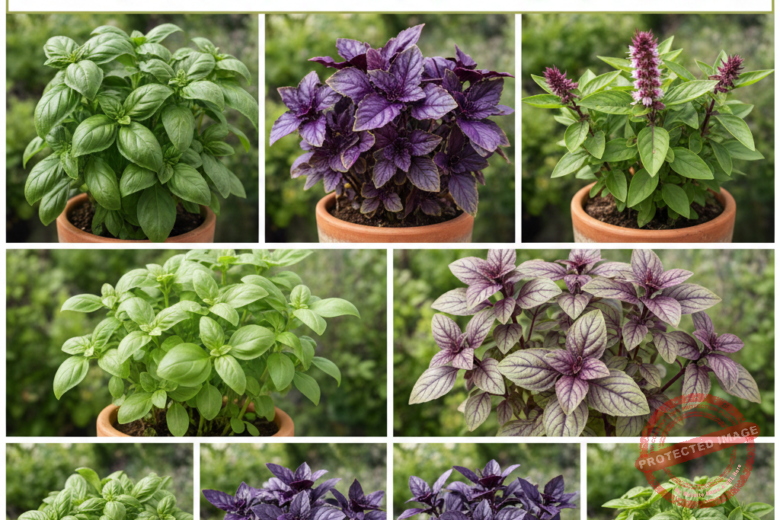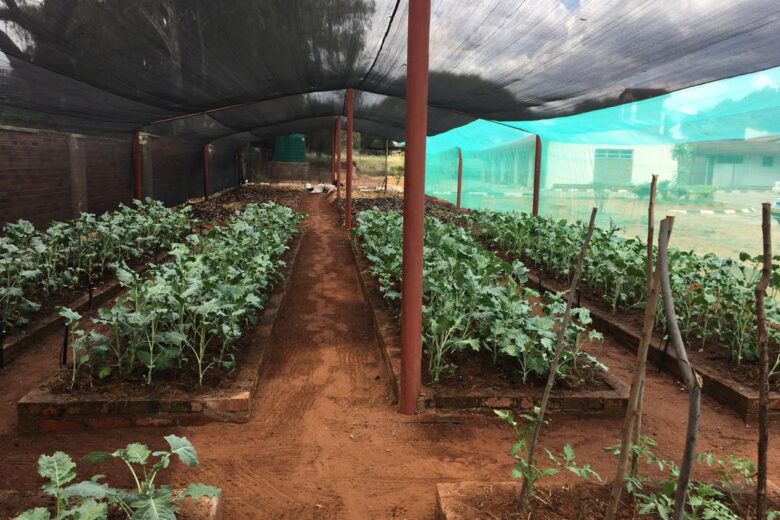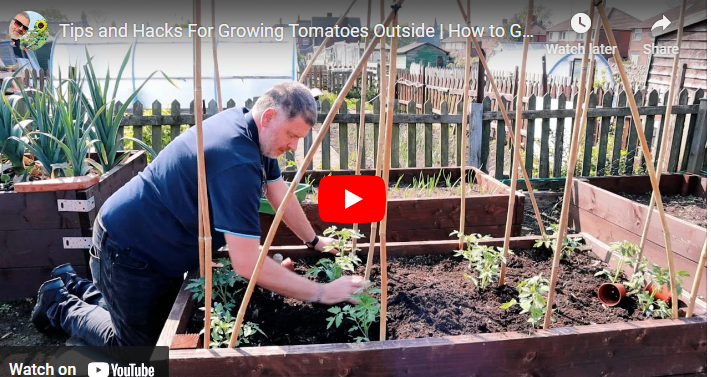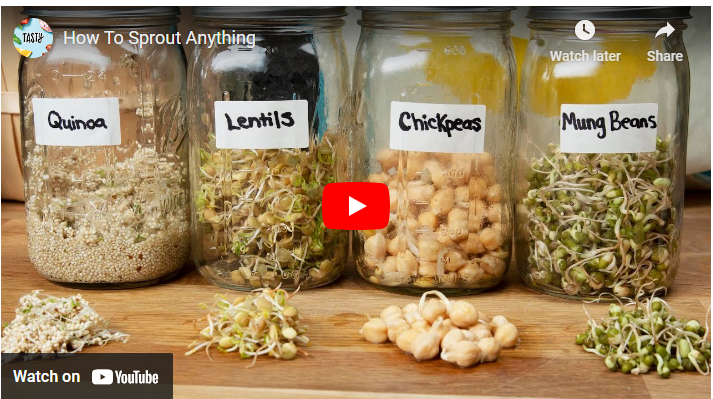Onions are a staple ingredient in many Ghanaian dishes, and planting them during the dry season can be challenging due to the scarcity of water.
To successfully grow onions during the dry season in Ghana, ensure you follow these guidelines as soil preparation, onion variety selection, planting techniques, watering, fertilization, and pest control.
If you’re planning to grow onions in Ghana during the dry season, you’ll need to pay extra attention to the steps mentioned earlier.
In this article, you’ll learn how to overcome these challenges and grow healthy onions in Ghana’s dry season. Ensure you read through to the end to learn all that you need to know
How to Plant Onions in Dry Season in Ghana
Planting in general during the dry season is tedious considering the texture of the soil which requires twice the work than when it rains.
It is possible to grow onions in the dry season however, you will need to follow the steps discussed below to achieve optimum results.
Read Also: [Beginners Guide] How to Plant Onions in Dry Season in Kenya
Step 1: Preparing the soil
Preparing the soil is one of the most crucial steps in growing onions during the dry season in Ghana. Onions require a well-drained soil that’s rich in organic matter.
You need to ensure that the soil is able to hold moisture, but not become waterlogged. This can be achieved by adding compost, manure, or other organic materials to the soil.
These organic materials help to improve the soil structure and increase its water-holding capacity.
One effective way to improve soil drainage is by incorporating sand or gravel into the soil. This helps to create air pockets in the soil, allowing water to flow through more easily.
Read Also: [Beginners Guide] How To Grow Spinach in Ghana
It also helps to prevent the soil from becoming compacted, which can hinder root growth. Be sure to mix in the sand or gravel thoroughly, so that it’s evenly distributed throughout the soil.
It’s important to break up any clumps of soil to allow for proper root growth. Also, you can loosen the soil can be accomplished by utilizing either a garden fork or a tiller.
Be careful not to overwork the soil, as this can damage the structure and make it difficult for the onions to grow. The goal is to create loose, crumbly soil that’s easy for the onion roots to penetrate.
Read Also: [Beginners Guide] How to Grow Vanilla In Ghana
You should also ensure that the soil pH is within the appropriate range for onions. The ideal soil pH range for onions is between 6.0 and 6.5, slightly on the acidic side.
If your soil pH is too high, you can lower it by adding sulfur or acidifying fertilizers. If it’s too low, you can raise it by adding lime or other alkaline materials.
Step 2: Create Seed Beds
Once you’ve prepared the soil, the next step in planting onions during the dry season in Ghana is to create a seed bed.
A seedbed is an area where you can sow your onion seeds and allow them to germinate before transplanting them to their final growing location.
To create a seed bed, you’ll need to clear the area of any debris, weeds or stones that may interfere with seed germination.
Read Also: [Beginners Guide] How To Grow Cocoa In Ghana
Once the area is cleared, use a garden rake to level the soil and create a smooth surface for planting.
The size of the seedbed will depend on the number of onions you want to plant and the available space in your garden.
It’s important to ensure that the seedbed is not too compacted, as this can hinder seed germination. You can use a garden fork or tiller to loosen the soil, making it easier for the onion seeds to take root.
If you’re planting a large area, a motorized tiller can save you a lot of time and effort.
Read Also: [Beginners Guide] How To Grow Coconut In Ghana
Step 3: Selecting High-Quality Onion varieties
Choosing the right onion variety is crucial for successful onion cultivation during the dry season.
Some onion varieties that are well-suited to Ghana’s dry season include Red Creole, Red Pinoy, and Yellow Granex.
Look for varieties that have a short maturity period, good drought tolerance, and disease resistance.
Step 4: Planting Onions
After you’ve prepared the seed bed, you can begin planting your onion seeds. Planting onions during the dry season requires careful timing and technique.
You should plant onions at the beginning of the dry season when there’s still some moisture in the soil. Onions are typically planted in rows, with a spacing of about 4-6 inches between each seed.
Read Also: [Beginners Guide] How To Grow Okra In Ghana
You can plant the seeds by making small holes in the soil, dropping in the seeds, and covering them with a thin layer of soil.
Plant the onions in rows that are spaced about 15 cm apart, with individual plants spaced about 5 cm apart. Onions should be planted about 1-2 cm deep in the soil.
Step 5: Watering Onions
It’s important to keep the soil moist during the germination period, which can take anywhere from 7 to 14 days depending on the variety of onions.
You can water the seed bed with a gentle spray or mist, taking care not to wash away the seeds. To conserve water, use drip irrigation or apply water directly to the soil around the plants.
Read Also: [Beginners Guide] How To Grow Apple in Ghana
Water your onions deeply and infrequently to encourage deep root growth. Onions need about 1 inch of water per week, but this can vary depending on the weather conditions.
Sep 6: Fertilizing Onions
Onions require nitrogen, phosphorus, and potassium to grow properly. Apply a balanced fertilizer that contains all three nutrients to the soil before planting.
During the growing season, you can apply additional nitrogen fertilizer to promote leaf growth. Avoid applying too much nitrogen, as this can lead to excessive foliage and reduce bulb size.
Step 7: Controlling Pests and Diseases
Onions are susceptible to pests and diseases, especially during the dry season. Common pests that can affect onions include thrips, onion maggots, and cutworms.
Read Also: How to Grow Lettuce in Ghana [Beginners Guide]
Diseases such as fusarium rot, botrytis, and purple blotch can also damage onions. To prevent pest and disease problems, practice good sanitation, rotate crops, and use insecticides and fungicides as needed.
Step 8: Harvesting and Storing Onions
The optimal time to harvest onions is indicated by the yellowing and falling over of their tops. Lift the onions from the soil and allow them to dry in a warm, dry place for several days.
Once the onions are dry, you can store them in a cool, dry place for up to 6 months. Avoid storing onions near fruits or vegetables that produce ethylene gas, as this can cause the onions to spoil.
Benefits of Planting Onions in Dry Season
Reduced Disease And Pest Incidence
Planting onions during the dry season reduces the incidence of pests and diseases that thrive in wet and humid conditions.
Better Yield
Onions planted during the dry season have a higher chance of producing a better yield because they are less prone to rot, mold, and mildew.
Improved Quality
Onions grown in the dry season tend to be of better quality because the lack of moisture reduces the likelihood of diseases that can affect the plant’s development.
Challenges of Planting Onions in Dry Season
Water Availability:
One of the biggest challenges of planting onions in the dry season is the availability of water. Onions require a consistent supply of water, and during the dry season, this can be a challenge.
Temperature Extremes:
The dry season can be characterized by temperature extremes, with hot days and cold nights. These temperature fluctuations can stress onion plants, affecting their growth and development.
Pests And Diseases:
Although the incidence of pests and diseases is generally lower during the dry season, onion plants can still be affected by certain pests and diseases that thrive in dry conditions.
Best Practices of Planting Onions in Dry Season
Ensure Adequate Irrigation
Water is critical for onion growth, so it’s essential to provide adequate irrigation. Drip irrigation is the most efficient way to deliver water to onion plants.
Use High-Quality Seeds
The quality of onion seeds used for planting is critical. It is advisable to make use of seeds that have been certified and possess resistance to pests and diseases.
Control Weeds
Weeds can compete with onions for water and nutrients, so it’s essential to control them. Hand weeding or the use of herbicides is recommended.
Common Diseases and Pests of Onion Plants
Onion Thrips
This is a small insect that feeds on onion leaves, causing them to turn yellow and wither.
Onion Maggot
This pest lays eggs in the soil near onion plants, and the larvae feed on the roots, causing stunted growth and yellowing leaves.
Fusarium Basal Rot
This disease affects the onion bulb, causing it to rot and become soft.
How Much is Onions Sold in Ghana
The price of onions in Ghana varies depending on the season, location, and quality. Onions are typically sold in markets, and the price can range from GHS 5 to GHS 15 per kilogram.
Is Onion Farming Profitable in Ghana
Onion farming can be profitable in Ghana if done correctly. The demand for onions is high in the country, and with the right inputs and techniques, farmers can achieve good yields and profits.
Varieties of Onions in Ghana
There are several varieties of onions that are grown in Ghana, including Red Creole, Bombay Red, and Texas Grano 502.
Best Time to Plant Onions in Ghana
The best time to plant onions in Ghana is during the dry season, which typically runs from November to February. This period provides the right conditions for onion growth, including moderate temperatures and low humidity.
Price Of A Bag Of Onion In Ghana
The price of a bag of onions in Ghana varies depending on the location and season. On average, a bag of onions weighing 50kg can cost between GHS 200 to GHS 400.
Onion Production In Ghana PDF
Onion production in Ghana is an important agricultural activity, with the crop being grown mainly in the Northern and Upper East regions. A PDF document on onion production in Ghana can provide valuable information on the best practices, challenges, and opportunities in the sector.
Onion Yield Per Acre In Ghana
The onion yield per acre in Ghana can vary depending on the farming practices and environmental conditions. On average, farmers can expect to harvest between 5 to 10 tonnes per acre.
How To Plant Onions In Ghana
To plant onions in Ghana, farmers should first prepare the soil by plowing and harrowing. Then, they should select high-quality onion seeds, plant them at a depth of 2cm to 3cm, and space them at 10cm to 15cm apart. Regular watering and weed control are also essential.
Onion Seeds for Sale in Ghana
Onion seeds for sale in Ghana can be found in various agro-input shops and online marketplaces. Some of the popular onion seed varieties include Red Creole, Bombay Red, and Texas Grano 502.
Onion Farming PDF
An onion farming PDF can provide useful information on the best practices, techniques, and challenges of growing onions in Ghana. It can cover topics such as soil preparation, planting, pest and disease control, and harvesting.
Bawku Red Onion
Bawku Red Onion is a popular onion variety grown in Ghana, particularly in the Upper East Region. It is known for its unique red color, pungent taste, and high nutritional value. Bawku Red Onion is widely used in Ghanaian cuisine and is also exported to neighboring countries.
Conclusion
Growing onions in Ghana’s dry season requires extra effort and attention to detail, but it’s worth it for the delicious, nutritious results. By following these guidelines for soil preparation, onion variety selection, planting techniques, watering, fertilization, and pest control, you can grow healthy, flavorful onions that will enhance your meals and impress your friends and family.



